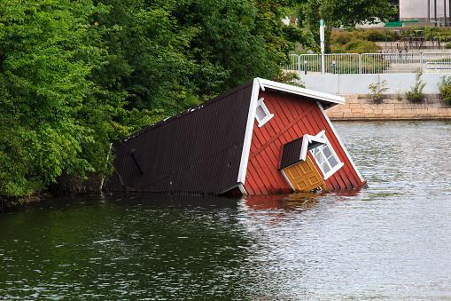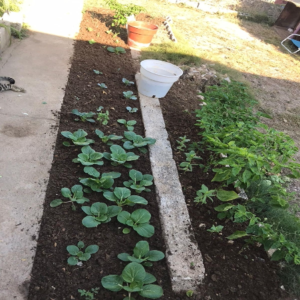In recent weeks, there has been increased talk of hurricane and disaster preparedness by our government. Over the years, natural disasters have displaced a number of Jamaican communities due to fires, floods, and more. Many of these events have been unprecedented in their impact and have occurred in areas that have not experienced events of this type, scale, or magnitude in the past.
While physical readiness is an important component, such as preparing a family emergency kit, knowing the location of shelters and approved evacuation routes, financial preparedness is just as important. That’s because access to your money and the ability to quickly make insurance claims for damaged property can be critical, especially if you are temporarily or permanently displaced.
As we progress through these times, there are indeed many other crises that will be upon us. To mitigate the risk of another sudden economic downturn, you should have a financial “disaster plan” in place. Here are some recommendations:

- Build up your emergency funds – set aside savings to meet unexpected occurrences. Remember a very familiar rule “save for a rainy day.” The habit of saving from each paycheck pays off in the long term. Even if it’s a small amount to start, it will grow over time. An emergency fund goes a long way towards helping one stay afloat, ensuring that essential bills are paid, and reducing the stress from an unexpected job loss or other dislocation.
- Keep a record of your non-essential spending – it’s always key to be aware of your essential and non-essential ongoing expenses. When you are aware of your spending, you will better know how to pivot.
- Understandingwhere your money goes gives you a clearer picture of your cashflow realities. Recent lockdowns have disrupted daily spending habits of dining out and personal care luxuries. Reconsider your essential needs and practice to “ban you belly” at times.
- Debt cancellation – Cancelling—if not avoiding—debt while also building strong cash savings is key to surviving a financial crisis. At a minimum, having six months of living expenses in cash and eliminating debt is a massive step in the right direction. This is not easy, but it is achievable if you are patient and committed. Once this goal is attained, life becomes much less stressful and decision-making much easier.
- Insurance provides a safeguard against the unexpected. Whether its life, health (critical care), homeowner’s, or anything else you need to be protected, a policy ensures that should anything go wrong, you’re covered.
- Know your survival number – It’s difficult to predict when an actual crisis will hit. But as Kingdom people, we should always be prepared. We know the word of God as shared in Luke 21 vs 11 “There will be great earthquakes, famines and pestilences in various places, and fearful events and great signs from heaven”. Therefore, analyse the “must-haves” in your life and business, the bare essential; from that you calculate the minimum cash you need to stay afloat. Work towards saving that up as your “crisis” cash.
- Talk with your financial advisor. In recent times, we have seen how quickly shifting take place in the financial markets. Get a better understanding of your investment portfolio. Explore more conservative products that can help you weather volatility. Bonds and certain types of annuities limit downside but still allow your principal to grow. Fixed-indexed annuities even allow policyholders to capture growth when the associated index performs well without investing in the underlying stocks.
- Take Note of Unclaimed Balance Advisories
Persons are encouraged to take note of the Ministry of Finance and the Public Service’s publication of unclaimed account balances.
Unclaimed balances are monies that have remained in the possession or under the control of a banking institution for 15 years or more.
This means funds in the bank account of persons who have not conducted any transactions utilising these over the 15 or more stipulated years.
Economic analyst in the Ministry’s Financial Regulation Division, Nadine Pryce, stated that under Section 126 of the Banking Services Act, unclaimed balances must be published in the Gazette and in a daily newspaper circulated in Jamaica, two times per year.
“The unclaimed balances information can also be accessed on the website of the Ministry of Finance and the Public Service,” she indicated.
Persons seeing their names and account details published have up to one year from the date of the initial publication to retrieve their money at their banking institution.
Failing this, the funds will become part of Jamaica’s revenue and be remitted to the Accountant General. Thereafter, persons have up to 15 years to retrieve their unclaimed balances, once they can establish proof of ownership to the Accountant General’s satisfaction.
“Under the Banking Services Act, the Ministry of Finance and the Public Service is only responsible for publishing unclaimed balances in the newspaper and Gazette. It is up to the banking institutions to determine when to classify an account as dormant,” Pryce informed.
Queries regarding balances must be made to the relevant banking institutions or the Accountant General’s Department where the funds are recoverable.
Source: JIS






